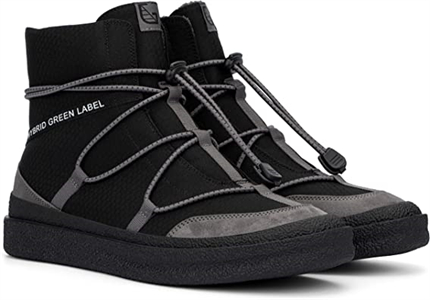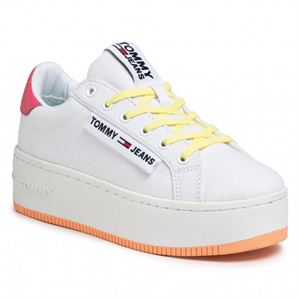The rise of high-end men’s sneaker brands represents a significant shift in the fashion industry, where luxury and streetwear have merged to create a new category of upscale sneakers. Several factors have contributed to the emergence and success of high-end sneaker brands:
- Celebrity Endorsements: Celebrities and fashion influencers have played a crucial role in popularizing high-end sneakers. When well-known figures such as musicians, athletes, and actors are seen wearing luxury sneakers, it drives demand and creates a sense of desirability.
- Streetwear Influence: The fusion of streetwear and luxury fashion has led to a demand for high-quality sneakers with unique designs. Streetwear enthusiasts often seek exclusivity and authenticity, which luxury brands can provide.
- Collaborations: Many high-end sneaker brands collaborate with streetwear designers, artists, and celebrities to create limited-edition releases. These collaborations generate buzz and make these sneakers highly collectible.
- Crossover Appeal: High-end sneakers appeal to a broad range of consumers, from sneakerheads and streetwear enthusiasts to traditional luxury shoppers. This crossover appeal has expanded the market for upscale sneakers.
- Craftsmanship and Materials: Luxury sneaker brands often prioritize quality craftsmanship and the use of premium materials such as Italian leather, suede, and exotic skins. The attention to detail sets them apart from mass-produced sneakers.
- Comfort and Performance: Luxury sneaker brands have not compromised on comfort and performance. Many high-end sneakers are designed with advanced cushioning technology, making them comfortable for all-day wear.
- Unique Aesthetics: High-end sneaker brands experiment with innovative and bold designs, incorporating elements like oversized soles, unique color palettes, and distinctive branding. These unique aesthetics appeal to fashion-forward consumers.
- Limited Availability: Some luxury sneaker brands intentionally limit the availability of their products, creating a sense of exclusivity and rarity. This scarcity drives up demand and resale prices in the secondary market.
- Heritage and Legacy: Some luxury brands have a long history in the fashion industry, which adds a sense of heritage and legacy to their sneaker lines. This heritage can attract collectors and connoisseurs.
- Sneaker Culture Integration: Luxury fashion houses have embraced sneaker culture, recognizing its cultural significance. They have incorporated sneakers into their runway shows, further blurring the lines between high fashion and streetwear.
- E-commerce and Social Media: The rise of e-commerce and social media platforms has made it easier for consumers to discover and purchase high-end sneakers. Brands use social media to showcase their products and engage with their target audience.
Notable high-end men’s sneaker brands that have successfully navigated this trend include Balenciaga, Gucci, Louis Vuitton, Prada, and Off-White, among others. These brands have not only created desirable sneakers but have also established themselves as key players in the luxury fashion industry. The rise of high-end sneaker brands signifies a shift in consumer preferences and an evolving definition of luxury in the modern fashion landscape.



















